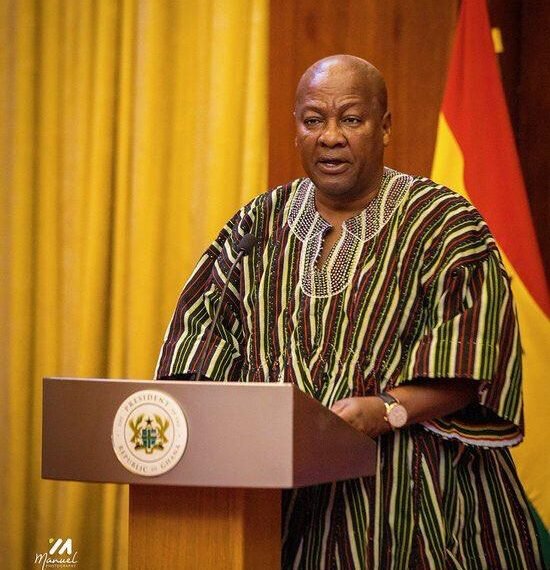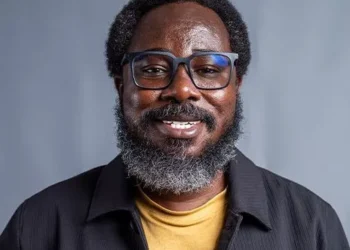President John Dramani Mahama has announced the non-renewal of the long-standing and highly contentious contract between the Youth Employment Agency (YEA) and Zoomlion Ghana Limited.
This pivotal decision, conveyed through a letter from the Secretary to the President, Dr. Callistus Mahama, directly addresses a petition written by renowned investigative journalist Manasseh Azure Awuni over allegations of labour exploitation and questionable value for money within the YEA-Zoomlion partnership.
The President’s directive not only signals the end of a controversial chapter but also ushers in a new era promising improved remuneration for thousands of sanitation workers and enhanced transparency in public procurement.
The official communications from the presidency outlined a multi-pronged approach to reform. Firstly, the letter explicitly confirms that the contract between the YEA and Zoomlion has indeed expired and, crucially, “will not be renewed.”
This unequivocal stance closes the door on an arrangement that had long been a source of public dissatisfaction and a drain on public finances.
“Audit of Payments and Claims: All payments made to Zoomlion after the contract’s expiration will be thoroughly audited. No further payments will be authorised without proper verification, and any unauthorised payments will be recovered.”
Secretary to the President, Dr. Callistus Mahama
Thirdly, a significant shift in procurement strategy has been announced, with the communication noting that the Cabinet has directed that all future sanitation contracts must undergo a competitive procurement process.
Rather than perpetuating a single national contract, the new approach will see the introduction of regional or district-based tenders for private firms.
This decentralised tendering system is expected to foster healthy competition among companies, thereby reducing costs through competitive pricing and stimulating innovation as firms vie to secure contracts based on service quality.

Additionally, the presidency’s communications noted that a cabinet subcommittee has been tasked with developing the modalities for implementing this crucial reform, promising a more efficient and transparent contracting environment.
Better Remunerations for Sweepers
Perhaps one of the most impactful commitments in the President’s response directly addresses the plight of the sanitation workers. With the anticipated cost savings derived from competitive procurement, the government intends to significantly increase the “sweeper fees to a more livable income.”
This pledge stands as a beacon of hope for thousands of workers who have endured years of inadequate compensation despite their indispensable contribution to public health and sanitation. It signals a governmental recognition of their dignity and the importance of fair labour practices.

Finally, the presidential directive extended its review to other related agreements, specifically fumigation contracts. The letter indicated that contracts not performed satisfactorily will be reviewed and, where appropriate, terminated in accordance with their terms and upon the advice of the Attorney-General.
“Please accept the assurances of my highest esteem”, the presidency’s communications ended. This overarching commitment to contractual integrity and performance-based engagement reinforces the government’s resolve to ensure that public funds deliver their intended value.
Zoomlion’s Controversial Deal
At the heart of the protracted controversy was a financial arrangement that civil society organisations and labour activists had consistently slammed as exploitative and inefficient.
Under the terms of the expired agreement, Zoomlion, acting as a middleman, received a substantial GHS 850 per worker from public funds disbursed through the Youth Employment Agency.
Yet, a disproportionate GHS 600 of this amount was retained by the private contractor as a “management fee,” leaving each street sweeper with a meager GHS 250 monthly income.
This stark disparity fueled accusations that the partnership primarily benefited the private firm at the direct expense of the sanitation workforce, who tirelessly cleaned markets, truck stations, and public spaces across Ghana’s Metropolitan, Municipal, and District Assemblies (MMDAs).

The contract, initially envisioned to organize a national sanitation workforce, had instead become a symbol of what critics argued was a broken system of outsourcing public services.
The formal petition that spurred this governmental response was submitted by renowned investigative journalist Manasseh Azure Awuni, whose persistent advocacy brought these serious concerns to the forefront of national discourse.
His petition highlighted the critical need for a re-evaluation of the YEA-Zoomlion partnership, emphasising the significant questions it raised regarding value for money and the deplorable conditions of low-paid sanitation workers.
Public Feedback and Commendation
While a formal statement from Manasseh is yet to be issued, his initial reaction, describing President Mahama’s response as “one of the best pieces of news” of his journalism career, underscores the profound significance of this presidential directive.

The cessation of the YEA-Zoomlion contract and the subsequent policy shifts represent a landmark moment for governance in Ghana.
It demonstrates a responsiveness to civil society advocacy and a commitment to addressing systemic issues of public resource management and social equity.
The transition to competitive, localised procurement promises not only cost efficiencies for the taxpayer but also the potential for local businesses to thrive in the sanitation sector, fostering a more diversified and robust economy.
Most importantly, the promise of a “more liveable income” for sanitation workers is a powerful testament to the administration’s intent to prioritise human dignity and fair compensation, ensuring that those who keep Ghana clean are adequately rewarded for their vital efforts.
This series of directives paves the way for a more just, transparent, and effective sanitation management system that truly serves the public interest.



















